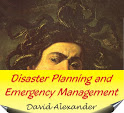What is the difference between a professional society and a learned society? On the face of it, the answer is simple: a professional society is an association of people in a profession who wish to work together in some form, and to have a common identity and voice and to promote their profession. A learned society is a custodian of knowledge that acts on behalf of those members of a profession that are members of it. It immediately becomes clear that these definitions are inadequate and improving them is likely to cause the definitions to converge. Yet although some learned societies are professional associations, and some professional societies act as if they were learned societies, there is a difference.
Let us consider some examples. The UK's Royal Geographical Society (RGS) is a quintessential learned society. It exists to promote geography in all relevant guises and places. In the 1970s, the RGS worked alongside the Institute of British Geographers (IBG), which had been founded by university academics to promote interaction among those who teach and research geography (although school teaching was the preserve of another professional association, the Geographical Association). At a certain point, the RGS merged with the IBG. This did not preclude non-academics from becoming members and fellows of the resulting organisation (named the "RGS with the IBG") but it strengthened both as a result of joining forces. Both organisations retained their own journals, which had acquired different characters (nevertheless, it is hard to say that the IBG journals are more 'academic' than the RGS's flagship Geographical Journal).
The Geological Society of London (GSL) began in 1807 as a fairly loose association of gentleman-enthusiasts for geology. It grew into a major authority on geological matters and in 1991 absorbed the Institution of Geologists, which was the apposite professional association. The GSL provides the chartered geologist route to accreditation. Organisations such as the British Psychological Society (with 60,000 members) provide a focal point for knowledge, influence and identity in the given field and thus acts more as a professional association.
From this we can see that these organisations seldom seem to want to maintain a distinction between learned society and professional association. A strong mission to further their discipline or profession means that they will offer any services they think are appropriate and in demand by their membership.
The Institute of Civil Protection and Emergency Management (ICPEM) was born in 1938 as the Institute of Civil Defence. This is a field that, in its modern form, was effectively born in 1937, the year before ICD was founded, when the first concerted aerial bombardment of the modern era occurred in Guernica, northern Spain, and there were semi-improvised efforts to protect the non-combatant population. In point of fact, the idea of absorbing non-combatants into safe zones had gained traction in the 1930s, but it did not produce a civil defence body until 1958, when the International Civil Defence Organisation was founded in Geneva. ICD was effectively an association for the nascent profession of civil defence operative. Yet when it later became the Institute of Civil Defence and Disaster Studies (ICDDS) it adopted as its motto "excellence in disaster research" - the badge of a learned society. In 2009 ICDDS became ICPEM, but it retained the motto.
What should a learned society do to distinguish itself from a professional association? Perhaps before answering that one should ask, why would it want to distinguish itself in that way? The premier learned association is the Royal Society [of London for Improving Natural Knowledge - to give it its full title], which was founded in 1660. There is no doubt that the Royal Society is more prestigious and therefore carries more weight than other bodies that unite scientists, academics or people from the professions. Hence, there may be something of a desire to emulate it. Other than that, there is little in the way of a reason. A learned society must care for knowledge, a professional society for people, but there is no reason why it should not also be the other way around. Societies that are keen to thrive and grow are usually also keen to cover as many bases as possible within their fields, and to provide as comprehensive a set of services as possible.
As a learned society, ICPEM can trade on the fact that it is the oldest such body in this field in the world, older than, for example, the International Civil Defence Organisation. It has a more modern name, one that is entirely appropriate to today's emphasis on grass-roots emergency planning and management, and collaboration rather than authoritarian chains of command. The best way that ICPEM can fulfill its mission is to provide fellowship (in the broadest sense of the term) for those people whose professional or academic interest is civil protection or emergency management, and help to preserve, share and encourage the knowledge that they need to acquire or can offer. The best benefit from being part of ICPEM is to be part of a common process in which knowledge in its many forms is generated, developed and shared.
http://www.theicpem.net/

